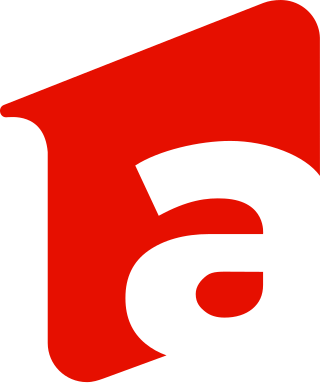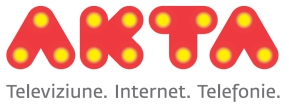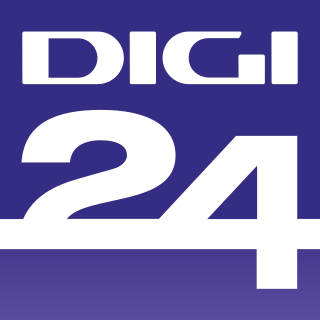The mass media in Romania refers to mass media outlets based in Romania. Television, magazines, and newspapers are all operated by both state-owned and for-profit corporations which depend on advertising, subscription, and other sales-related revenues. The Constitution of Romania guarantees freedom of speech. As a country in transition, the Romanian media system is under transformation.

T-Mobile is the brand name used by some of the mobile communications subsidiaries of the German telecommunications company Deutsche Telekom AG in the Czech Republic, Poland and the United States.

Antena 1 is a Romanian free-to-air television network owned by the Antena TV Group, part of the Intact Media Group. Its programming consists of television news programs, soap opera shows, football matches, entertainment programmes, movies and television series.

Telekom Romania Mobile Communications S.A. is a mobile network company in Romania, wholly owned by OTE, which in turn is controlled by Deutsche Telekom, operating under Telekom brand. Telekom Romania Mobile had 3.5 million subscribers with 15% market share as of July 2021.

Antena 3 Cable News Network, known as Antena 3 CNN, formerly Antena 3, is a Romanian news channel owned by Antena 3 S.A. and part of the Intact Media Group. An Exclusive News Partner of CNN International in Romania since September 27, 2022, it focuses on news programmes and current events, mainly with political and economic topics. It was launched on June 27, 2005 as the third Romanian 24-hour news channel, after Realitatea TV being the first television channel launched in 2001 and N24 being the second television channel launched in 2004, which was later transformed into a generalist television channel in 2010.

The Liga I, also spelled as Liga 1, is a Romanian professional league for men's association football clubs. Currently sponsored by betting company Superbet, it is officially known as the SuperLiga. It is the country's top football competition, being contested by 16 clubs which take part in a promotion and relegation system with the Liga II. The teams play 30 matches each in the regular season, before entering the championship play-offs or the relegation play-outs according to their position in the regular table.

Telekom TV is a satellite television platform of Telekom Romania, a Romanian telephony and Internet provider. It operates on the satellite: 39°E, Hellas Sat 3. As of 2008, Dolce has more than 500.000 customers.

AKTA TV was a Romanian DTH platform. It belonged to Digital Cable Systems, a telecommunication operator which offered satellite, cable television, internet and telephony in over 2,500 locations in Romania.
In Romania, there are 18.8 million connections to the Internet. Romania's country code is .ro. The .eu domain is also used, as it is shared with other European Union member states. There were over 600 000 domains registered under .ro at the end of 2012.
Television in Romania started in August 1955. State television started to broadcast on 31 December 1956. The second television channel followed in 1968, but between 1985 and 1990, there was only one Romanian channel before the return of the second channel. Private broadcasters arrived in December 1991, with SOTI which was the first private nationwide television station in Central and Eastern Europe. Romania has the highest penetration rates for pay television in the world, with over 98% of all households watching television through cable or satellite.
A1 Slovenija is a telecommunications company operating the second largest mobile network in Slovenia. Prior to April 2017, the company was known as Si.mobil.
Zoltán Teszári is a Romanian businessman of Hungarian ethnicity. He is the founder of Digi Communications.

Digi24, often known as Digi 24, is a 24-hour Romanian news television channel which was launched on 1 March 2012 by Digi TV.

Mavenir Systems, Inc. is an American telecommunications software company, created in 2017 as a result of a three-way merger of existing companies and technologies, that develops and supplies cloud-native software to the communications service provider (CSP) market.
Orange Sport is a group of four Romanian sports television channels which is available only to Orange Romania television subscribers. It is operated by Orange Romania and was first launched on 13 August 2010 as Dolce Sport by Romtelecom. After rebranding of Romtelecom to Telekom, it was rebranded as Telekom Sport on 12 September 2017. After the selling of Telekom Romania, operator of fixed services, to Orange Romania, it was rebranded to Orange Sport on 28 March 2022.








